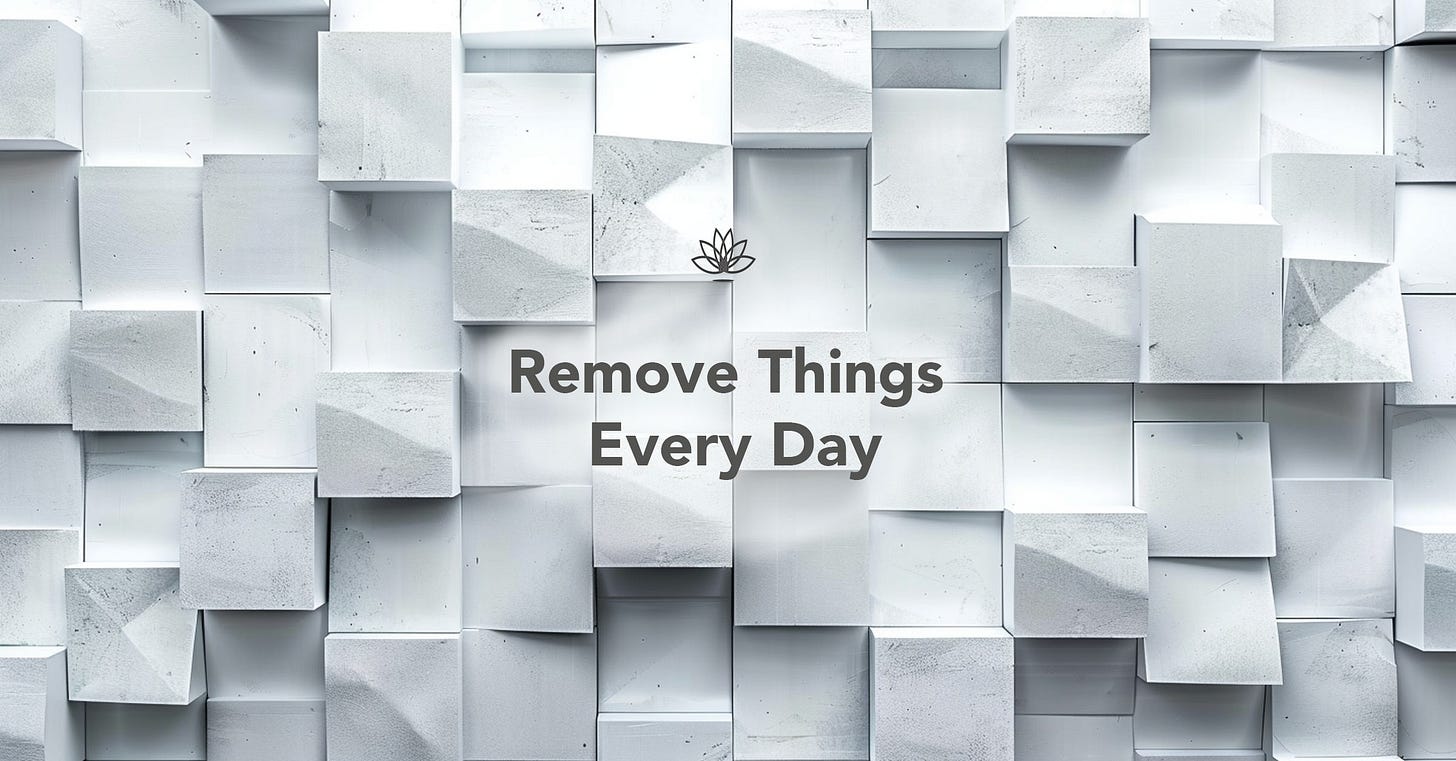Remove Things Every Day
In our hyper-constructive world, it's easy to equate success and happiness with accumulation. We add new skills to our resumés, hoping to land better jobs and earn more money. We nurture relationships, striving for deeper connection and fulfillment. We consume knowledge, experiences, and perhaps even superfoods, in the hopes they will enhance our lives and bodies. All these additions contribute to our personal growth and sense of achievement, fitting the familiar narrative of self-improvement.
Lao Tzu, the ancient Chinese philosopher, offers a profound insight: "To gain knowledge add things every day, to gain wisdom remove things every day." This statement invites us to consider the distinction between knowledge and wisdom. While knowledge might bring us closer to our worldly goals, wisdom leads to a deeper peace.
What, then, do we need to remove to gain wisdom? It's not the material things themselves that are the issue, but rather their hold on us. We believe happiness depends on external factors— possessions, reputation, relationships, and bodily health. This belief traps us in a cycle of dependency, where inner satisfaction is contingent on external circumstances.
To find true serenity, we must deconstruct this belief by making a different choice. A Course in Miracles teaches, “When your mood tells you that you have chosen wrongly, and this is so whenever you are not joyous, then know this need not be.” The first step is understanding that our true essence is neither defined nor shaped by the fluctuating conditions of the world. From here we can practice looking with gentleness and without judgment at each aspect of the world that reinforces the sense of "me". This is the removal of attachment of which Lao Tzu spoke, leading to a glorious sense of unconditional peace.
Join me in Thursday’s class where we’ll explore the acquisition of wisdom through the transformation of self-perception into the reflection of perfect oneness. I look forward to seeing you then.


